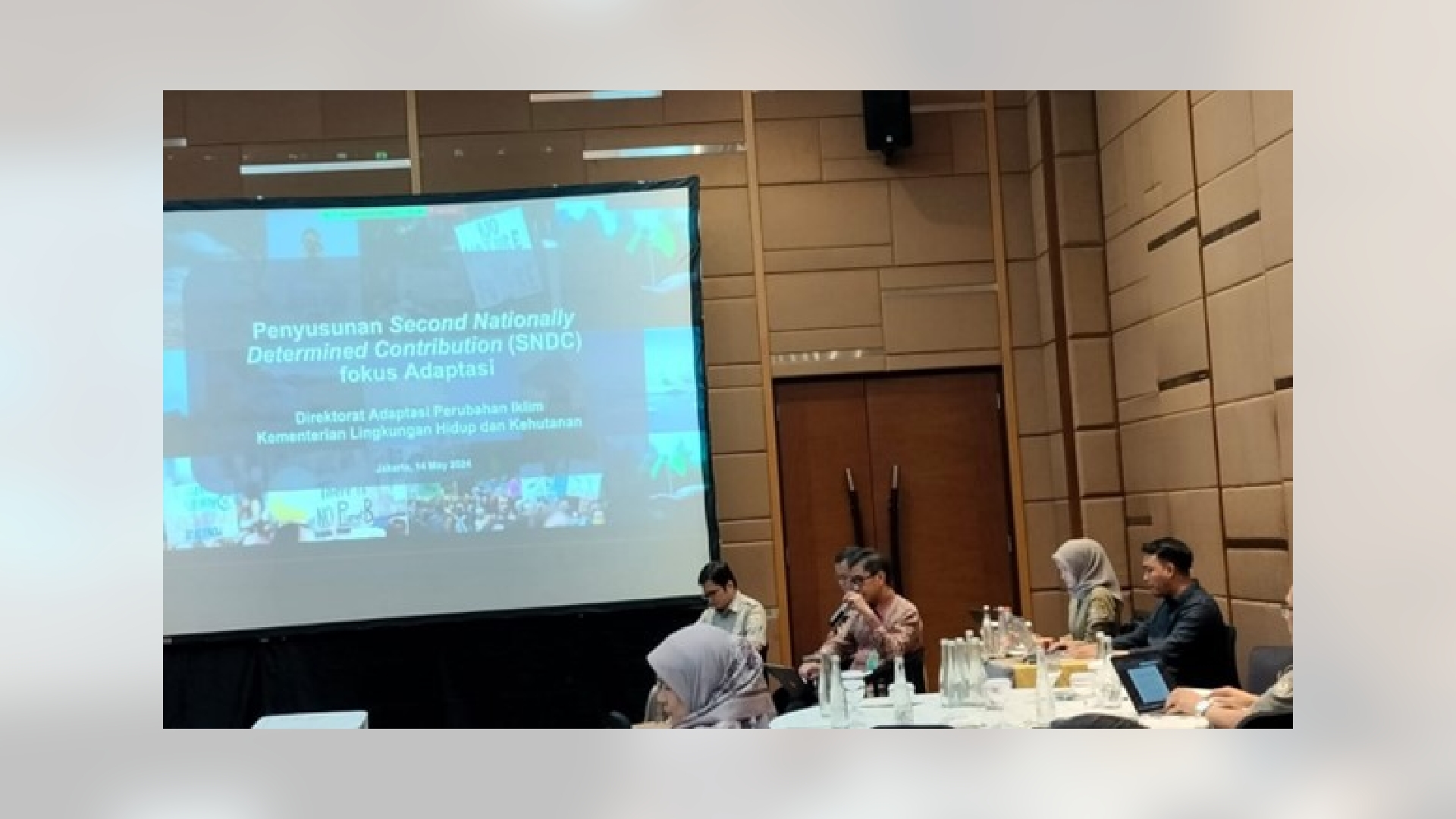May 14, 2024 | UCLG ASPAC, under the Climate Resilient and Inclusive Cities (CRIC) project, participated in a focus group discussion for non-party stakeholders (NPS) discussing Indonesia’s Second Nationally Determined Contribution (SNDC) hosted by the Directorate of Adaptation, Directorate General of Climate Change, Ministry of Environment and Forestry (MoEF) of Indonesia. UCLG ASPAC CRIC contributed to the discussion through the sharing of project achievements in its 10 pilot cities.
Indonesia’s SNDC event commenced with a presentation from Dr. Irawan Asaad, the new Director of Adaptation of MoEF. According to him, the impacts of climate change on Indonesia’s priority sectors are imminent and immediate action is required. These priority sectors include food security, water resources, energy, health, ecosystem, and disaster management.
The meeting discussed the element of adaptation in SNDC. The adaptation element is part of national commitments to support climate actions. The meeting listened to both party and non-party stakeholders to make the SNDC document more comprehensive.
Dr. Irawan mentioned that Indonesia’s SNDC will be built on FNDC (First NDC) achievements that provide recommendations for the renewal of the Indonesian Government’s Nationally Determined Contributions to pursue climate adaptation and mitigation actions.
Specific to climate adaptation actions, MoEF has conducted a gap analysis on the development and achievements outlined in Indonesia’s FNDC found in Updated NDC, Enhanced NDC, Roadmap NDC and Indonesia’s Adaptation Commitments (AdCom) 2030.
Directorate of Adaptation, MoEF, follows up the result of this gap analysis with evaluation meetings or focus group discussions to gather feedback from party and non-party stakeholders. The expected results of these evaluation meetings and focus group discussions are recommendations that will inform the development of six NDC policies: regulation, programme, tools, literacy, practices, and financing.
| Nationally determined contribution (NDC) is the heart of the Paris Agreement. NDC forms the basis for countries to achieve the objectives of the Paris Agreement. They contain information on targets, policies, and measures for reducing national emissions and adapting to climate change impacts. United Nations Framework Convention on Climate Change (UNFCCC) requires the country’s NDC to make “ambitious efforts” towards “achieving the purpose of this Agreement” and to “represent a progression over time.” The contributions should be set every five years and are to be registered to the UNFCCC Secretariat. |
UCLG ASPAC CRIC Programme
UCLG ASPAC CRIC Project contributed to the discussion by sharing the project’s achievements in 10 pilot cities (Cirebon, Bandar Lampung, Pekanbaru, Pangkalpinang, Samarinda, Banjarmasin, Kupang, Mataram, Gorontalo, and Ternate).
UCLG ASPAC CRIC Project, in the last four years, had completed both mitigation and adaptation training programmes that produced important “underlying assets” to support climate mitigation and adaptation actions.
In terms of mitigation actions, all CRIC pilot cities produced greenhouse gas (GHG) inventory, GHG baseline, and GHG emission projections up until 2030.
For adaptation actions, CRIC conveyed the most important lessons from pilot cities to the SNDC audiences. Talking about the importance of adaptation data, the CRIC project supported all pilot cities to calculate their climate risk and vulnerability profiles and listed priorities for adaptation actions. These assets are important to creating real climate adaptation actions including for tools and financing development.
Dr. Irawan at the end of the FGD meeting expressed appreciation to all non-party stakeholders, including UCLG ASPAC for supporting climate adaptation actions on the ground. Further, FGD meetings will be held before Indonesia’s SNDC is finalised and submitted to the UNFCCC next year.











